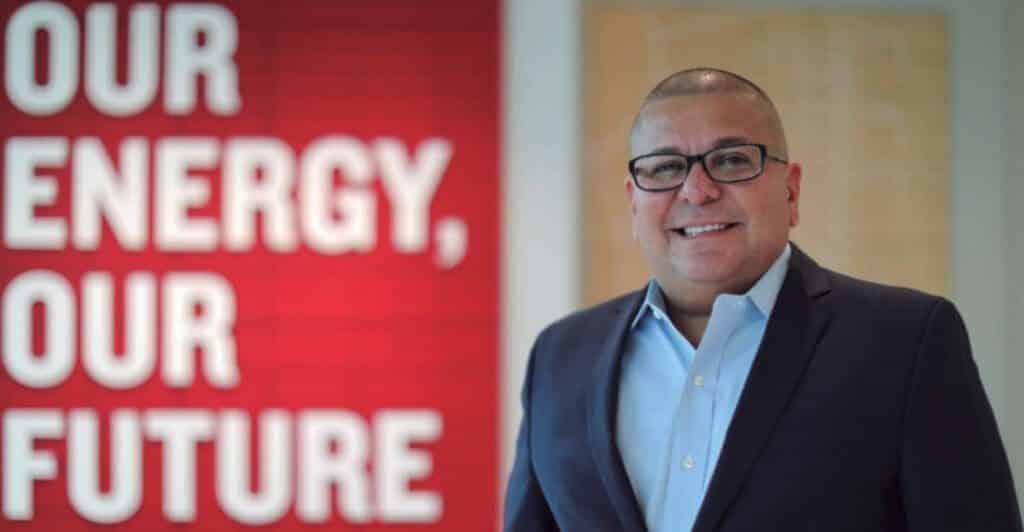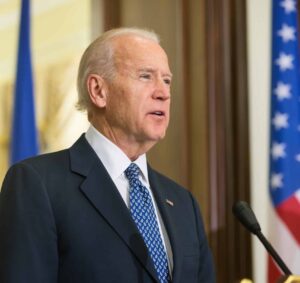David Steinkraus
Negocios Now
Local hospitals and internet data centers are there for you because Martín Montes is there for them. As vice president for large customer services at ComEd, Montes and his team of 76 are responsible for keeping electricity flowing to the utility’s biggest users.
Montes is also a first-generation Mexican-American whose parents had limited formal education. He recalls that his father, who was in school through only the second grade, taught himself mathematics and English. His father also purchased a set of encyclopedias and read them, and made sure his children did the same, Montes said.
“I can only imagine, if he had a formal education, how different his life would have been,” Montes said.
Instead, life was different for his son. Montes went to law school because when he was about 10, he contradicted his father at some point.
READ MORE: No more “plain vanilla” supplier diversity programs
“He said, ‘Son, you should be a lawyer because you don’t shut your mouth,’” Montes recalled. Because he was a boy, he heard the comment as a command.
Montes’ family lived in Humboldt Park. When his parents moved there in 1970, the neighborhood was Polish-German, he said. Then it shifted to become mostly Puerto Rican.
“So imagine a Mexican kid my age growing up in a Puerto Rican neighborhood. I learned both sides of two wonderful cultures,” he said.
And as he grew, he also learned the value of diversity.
Legal changes
Between his first and second years of law school, Montes became involved with the Mexican-American Legal Defense and Education Fund.
“I was fortunate enough to receive a summer fellowship at MALDEF’s Chicago regional office back in the summer of 1993,” he said. “That summer I was working on the appeal brief for what was eventually the creation of the first Latino congressional district here in Illinois.”
Luis Guttiérrez won that seat in Congress. Chuy Garcia holds it now. MALDEF, which Montes still maintains ties to, is currently involved in fighting immigration law battles and challenging the state’s legislative redistricting map.
After working for some national law firms and as an in-house lawyer for Walmart, he returned to Chicago to work for the general counsel of Exelon, ComEd’s parent company. Exelon was already known for its commitment to diversity when he joined, he said.
The company had created a billing system to track the use of attorneys of color and female attorneys at the law firms that handled its work. “And we would sit down with them and provide them a report on how they were doing,” Montes said.
By 2011, most law firms understood the need to hire and promote minorities and women, he said. They wanted to work with ComEd and supported its values.
“Is there still more work to be done? There’s always more work to be done,” he said.
Diversity in action
During his time at ComEd, Montes helped create the Illinois Utilities Business Diversity Council in 2015. The goal was to help diverse suppliers grow their businesses through close collaboration with utilities. From 2017 to 2020, the utilities involved (ComEd, Peoples Gas and North Shore Gas, Nicor Gas, Ameren Illinois, Illinois American Water, and Aqua Illinois) contributed $11.8 billion in diverse supplier spending to the state’s gross domestic product, according to a report from the council.
ComEd has also followed its own values. Of the 6,100 employees in its territory, Montes said, about 49% are minority. At the executive level (vice president and senior vice president) it’s 64%. At the next management level down, diversity is 56 to 57%, Montes said.
There has also been a concerted effort to hire minority firms, he said. From 2012 to 2020, spending with diverse-certified suppliers was $5.5 billion. In 2020 alone, ComEd spent $894 million with such suppliers, a 42% share of the company’s overall supplier spending.
As a boy he had learned about such civil rights heroes as Martin Luther King and Cesar Chavez, Montes said, so he was ready to become a civil rights lawyer after law school. Instead, he worked for law firms that defended companies in discrimination cases. One way to look at it, he said, is that he was defending the Man. But there is another way to create change, he said, because groups that apply pressure from the outside need allies on the inside who are in a position to move corporations in a positive direction. “And that’s where I find myself today,” he said.
“I would always say being Hispanic and Latino has benefited me in a positive way,” he said. “I am able to push for those changes, and to partner with allies who aren’t Latino or of color. While we still see an upward battle, I still see it, for me, as an ability to be at the table and represent my community.”











